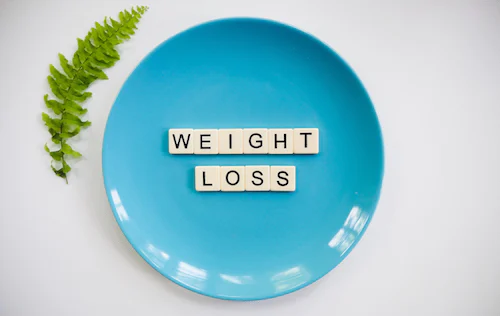Veganism is a lifestyle that excludes all forms of animal exploitation, including food, clothing, and entertainment. A vegan diet is plant-based, consisting of fruits, vegetables, grains, legumes, nuts, and seeds.
Why Go Vegan for Weight Loss?
A vegan diet is low in saturated fat and high in fiber, making it an effective way to lose weight. Research has shown that vegans have lower body mass indexes (BMI) compared to meat-eaters.
Understanding the Science of Weight Loss
How Does Weight Loss Work?
Weight loss occurs when you consume fewer calories than your body burns. This creates a calorie deficit, which leads to weight loss.
How Many Calories Do You Need to Burn to Lose Weight?
To lose one pound of body fat, you need to burn approximately 3,500 calories. This means you need to create a calorie deficit of 500 to 1,000 calories per day to lose one to two pounds of body fat per week.
How to Calculate Your Calorie Needs?
Your calorie needs depend on various factors, including age, gender, height, weight, and activity level. You can use an online calculator or consult a registered dietitian to determine your calorie needs.
Vegan Foods for Weight Loss
Plant-Based Proteins
Protein is essential for building and repairing tissues and maintaining muscle mass. Good sources of plant-based protein include legumes, tofu, tempeh, seitan, and quinoa.
High-Fiber Foods
Fiber helps you feel full and satisfied, reducing the likelihood of overeating. Good sources of high-fiber foods include fruits, vegetables, whole grains, legumes, nuts, and seeds.
Low-Calorie Foods
Low-calorie foods are a great way to bulk up your meals without consuming excess calories. Good options include leafy greens, broccoli, cauliflower, berries, and mushrooms.
Healthy Fats
Contrary to popular belief, fat is not the enemy of weight loss. Healthy fats, such as those found in nuts, seeds, avocados, and olive oil, can actually help you lose weight by keeping you full and satisfied.
Tips for Vegan Weight Loss
Create a Calorie Deficit
As mentioned earlier, weight loss occurs when you consume fewer calories than your body burns. To create a calorie deficit, you can reduce your calorie intake, increase your physical activity, or do a combination of both.
Plan Your Meals
Planning your meals in advance can help you make healthier choices and avoid impulse eating. You can use online meal planning tools or consult a registered dietitian to create a personalized meal plan.
Practice Mindful Eating
Mindful eating involves paying attention to your hunger and fullness cues and savoring your food. This can help you eat less and enjoy your food more.
Stay Hydrated
Drinking water can help you feel full and reduce your calorie intake. Aim to drink at least eight glasses of water per day.
Get Enough Sleep
Lack of sleep can disrupt your hormones and increase your appetite, leading to weight gain. Aim to get at least seven hours of sleep per night.
Meal Planning and Preparation
Meal planning and preparation are essential for successful weight loss on a vegan diet. By planning your meals in advance, you can ensure that you are consuming the right amount of calories and nutrients to meet your weight loss goals. Meal preparation also makes it easier to avoid unhealthy food choices when you are pressed for time or on the go.
Mindful Eating
Practicing mindful eating can help you achieve your weight loss goals by allowing you to tune in to your body’s hunger and fullness cues. This means eating slowly, savoring each bite, and paying attention to how your body feels during and after meals. Mindful eating can also help you develop a healthier relationship with food and reduce emotional eating.
Staying Hydrated
Staying hydrated is important for weight loss and overall health. Drinking plenty of water can help flush toxins from your body, keep your skin looking healthy, and prevent overeating. Aim to drink at least eight glasses of water per day, and consider replacing sugary drinks with herbal tea or infused water.
Lifestyle Changes
Lifestyle changes are essential for successful weight loss on a vegan diet. This may include incorporating regular exercise, reducing stress, getting enough sleep, and avoiding unhealthy habits like smoking and excessive alcohol consumption. By making small but meaningful changes to your lifestyle, you can achieve your weight loss goals and improve your overall health and well-being.
Seeking Support
Seeking support from friends, family, or a professional can help you stay motivated and on track with your weight loss goals. Consider joining a vegan support group, working with a nutritionist, or seeking the guidance of a personal trainer to help you achieve your goals. Remember, weight loss is a journey, and having a support system can make all the difference.
Conclusion
Losing weight on a vegan diet requires a combination of healthy eating habits, regular exercise, and lifestyle changes. By consuming plant-based proteins, high-fiber foods, low-calorie foods, and healthy fats, you can achieve your weight loss goals while still enjoying delicious and nutritious meals.
In addition, creating a calorie deficit, planning your meals, practicing mindful eating, staying hydrated, and getting enough sleep can all contribute to successful weight loss.
Remember, weight loss is a journey and not a destination. It takes time, patience, and commitment to achieve sustainable weight loss. By incorporating these tips into your lifestyle, you can reach your desired weight and improve your overall health and well-being.

